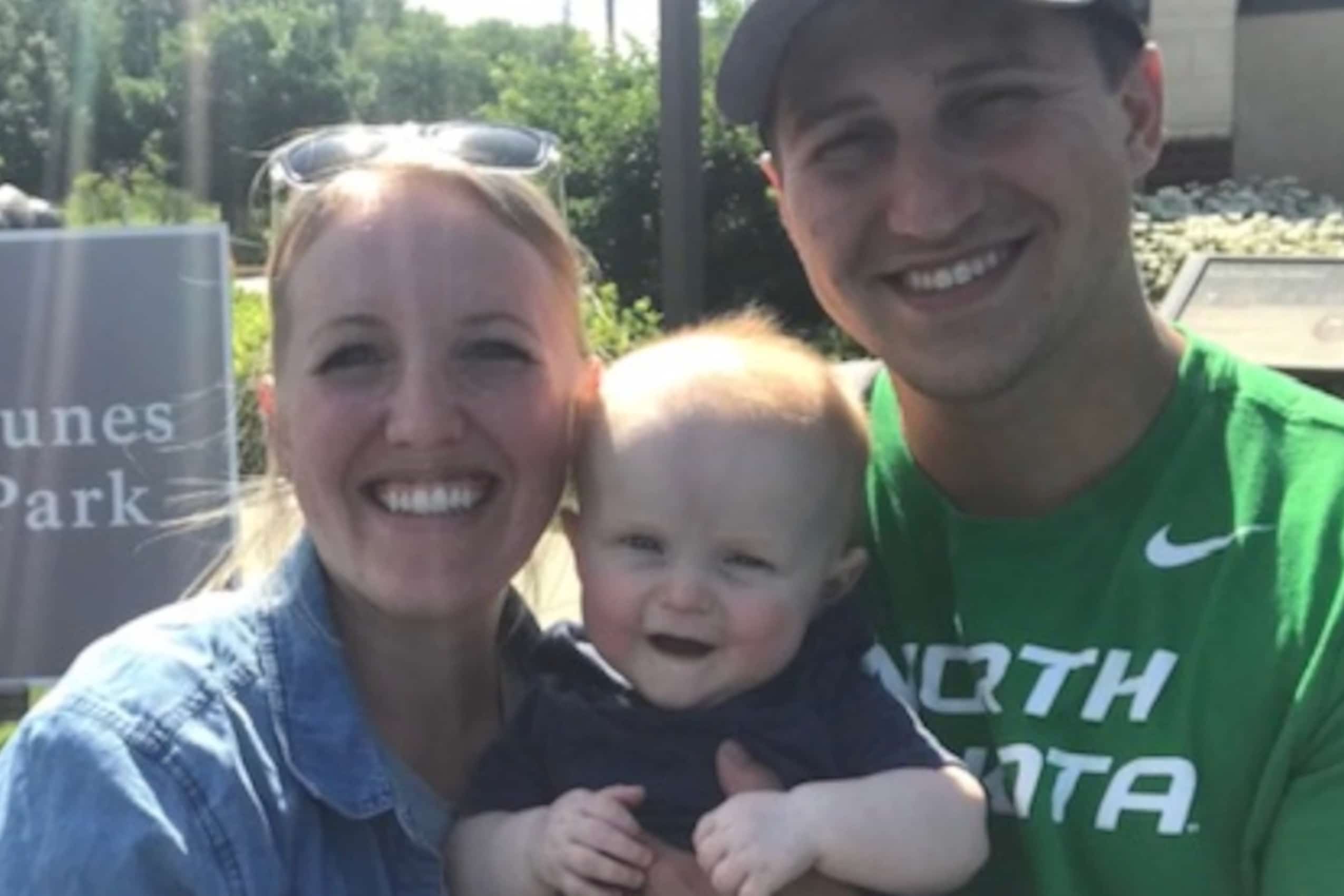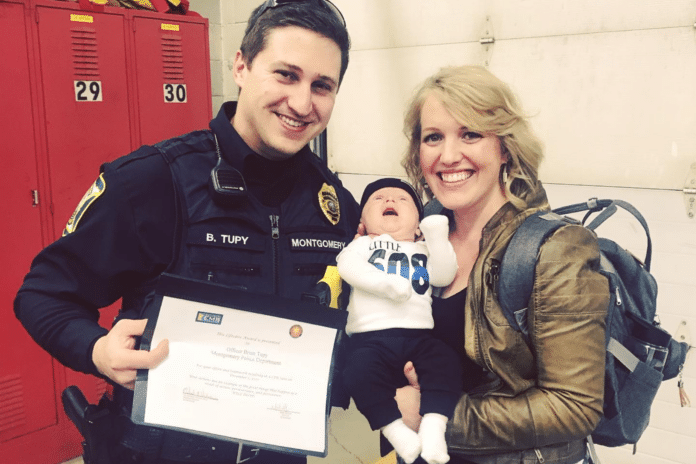A cop’s fight with alcohol and pain medication left his wife a widow. Annalee Tupy is sharing her late husband’s story in the hopes of encouraging other first responders battling addiction.
Tupy’s husband Bryan had a love for service and a passion for law and order. He was “honored” to be the person who helped others in their time of crisis, Tupy said. He was an “authentic man” in all he did. Bryan Tupy was a Montgomery police officer in southern Minnesota at the time of his death.
At just 31 years old, leaving behind his wife and their two-year-old son, Bryan lost his life to an accidental overdose, Tupy shared on Liz Collin Reports.
Years prior, Bryan was in a tragic car accident that left him in significant pain, and he began to struggle with using pain medication. He was able to continue his work in law enforcement during this time, and Tupy said the things he saw on the job didn’t help with his mental state.
“Heartache and abuse and PTSD, and the things that are seen [on the job] … it’s just not something that school can prepare people for, and he had a hard time with a lot of what he had seen and experienced,” Tupy said. He began numbing the pain of the job with alcohol and painkillers.
They married in 2018, and about 13 months into their marriage, Tupy began to notice red flags of her husband’s relationship with alcohol. At the time, she didn’t know the extent of his pain medication use either.

Tupy said Bryan didn’t see a problem because he saw the “worst of the worst” on the job.
“What you imagine to be someone who struggled with addiction … he didn’t use it on a regular basis,” Tupy said. She said they did a lot of fun things together as a family during this time and that Bryan relied on substances monthly, not daily or weekly, to get through.
Ups and downs
When their son was four months old, around January 2021, Bryan began to see for himself that he needed to get help. He was eventually able to get sober for six weeks, which Tupy described as an “incredible” time for their family.
“He could tell that he was healthier, he felt better, his body was able to keep up more,” she said.
But all it took was one drink.
“It was something as simple as a child’s birthday party with some of our friends,” Tupy shared.
Bryan kept his pain and PTSD hidden from his friends. “He didn’t want to admit that this was a problem at all,” Tupy said.
“Bryan said no at first [to a drink], but that kinda surprised his friends … they weren’t pressuring, they were just surprised, so he, I don’t want to say he caved, but he did, he had a beer,” Tupy said. A week and a half later he passed away.
“It was just introducing that sip of alcohol again … that created a new cycle.”
They got in an argument about his drinking the night before he died and planned to talk it over in the morning when he was sober. The next morning, Tupy found her husband in the garage. He had accidentally overdosed with a concoction of alcohol and pain meds. Their son was eight months old.
Grief and hope
Tupy said her Christian faith has gotten her through the pain and grieving and allowed her to share her story.
“I know that God’s plans are greater than my own,” she said. “If I didn’t have that foundation, this time of adversity and grief really would have taken me as well.”
Tupy said she can’t even articulate the level of mental, physical, and emotional pain she has suffered, but she has received a “peace that surpasses all understanding” due to her faith in Christ.

Now she is able to encourage the law enforcement community that they are not alone in their struggles.
Some cops don’t want to share their struggles because they think it’s part of the job or they “just have to suck it up and move on,” Tupy said. Bryan would say, “This is what we signed up for,” but Tupy wants officers to know that it’s important to be vulnerable.
“People are more than willing to and want to love on others and help others, but if they don’t know that people are hurting, they don’t know how to help,” she said.
Heroes Helping Heroes is one group that offers peer support for first responders.
Tupy and her son are doing well and have “incredible support” from family, friends, and work, she shared.
“I’ve had good days, and I continue to have good days and bad days, and it’s learning to live with grief. Grief and this loss, they don’t go away … you just learn to live with the grief and navigate it and grow with it,” she said.
You can donate to the Tupy family GoFundMe page here.
LISTEN:

















